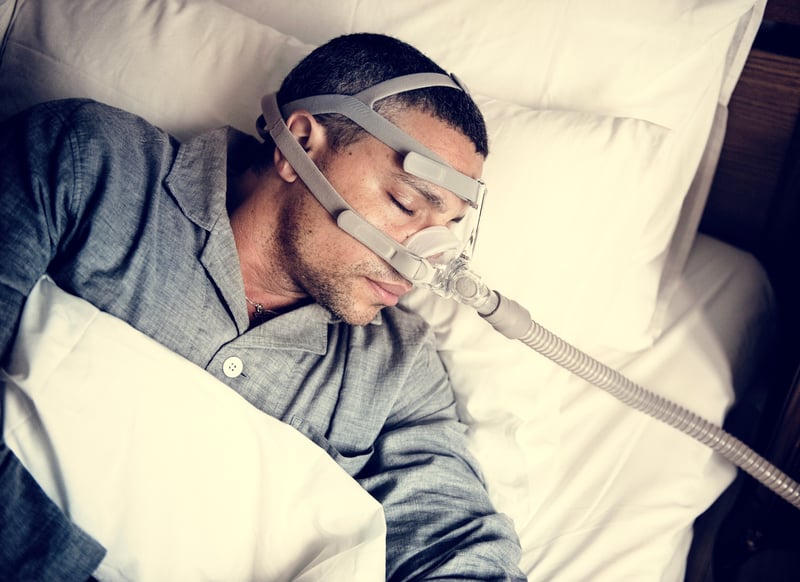Get Healthy!

- Cara Murez
- Posted May 24, 2023
Standard Tests May Underestimate Severity of Sleep Apnea in Black Patients
When it comes to diagnosing sleep apnea, current screening methods may put Black patients at a disadvantage, new research suggests.
Obstructive sleep apnea (OSA) is a serious sleep disorder characterized by disrupted breathing during sleep. An initial screening tool might be an overnight pulse oximeter test -- a small device clipped on to a fingertip that measures blood oxygen levels.
Investigators began this study after seeing research that pulse oximeters used on intensive care unit patients during the COVID-19 pandemic might be less accurate in Black patients than in white patients.
"While skin pigmentation seems to affect the results of oximetry, we did not know whether the same would be true during tests for OSA,"said study co-author Ali Azarbarzin, an assistant professor of medicine at Harvard Medical School, in Boston.
"We hypothesized that this would be the case,"Azarbarzin said in a news release from the American Thoracic Society.
So, the researchers examined the results of almost 2,000 patients of varying races and ethnicities who did overnight home sleep studies.
The investigators compared participants' average change in oxygen levels after each breathing pause using equipment that included oximeters.
The team found that Black participants had a smaller decrease in oxygen saturation -- blood oxygen level -- for each breathing pause compared to white patients. This was true after accounting for other factors that can influence blood oxygen levels, including age, sex, body mass index (a measurement based on weight and height) and smoking.
"Our findings suggest that these measurement problems may lead to underestimation of the severity of OSA in Black individuals. However, whether this underestimation of oxygen drops should lead to important differences in diagnosing and managing OSA in Black and other individuals with dark skin is unclear,"Azarbarzin said.
"Nonetheless, these findings highlight the need to rigorously test the accuracy of oximeters across diverse populations and also to consider whether factors other than the oximeter's characteristics could explain differences in oxygen patterns with breathing pauses,"he added.
The findings were scheduled for presentation Tuesday at the annual meeting of the American Thoracic Society, in Washington, D.C. Research presented at medical meetings should be considered preliminary until published in a peer-reviewed journal.
More information
The Sleep Foundation has more on obstructive sleep apnea.
SOURCE: American Thoracic Society, news release, May 23, 2023
